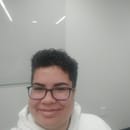Let me throw out a scenario. You’re about to take a big test. You’ve studied for the test all week and you’re feeling prepared. The sun is shining and everything is looking pretty good. You sit down to take the test and, for whatever reason, your pencil falls out of your hand and onto the floor. You stare at your pencil in despair and say, “Guess I’ll die.” That’s the classic Millennial/Gen Z dark humor.
Dark humor is usually shown in two different types of ways. One way is through the over dramatization of small problems, like dropping your pencil, then joking about larger consequences, like death. The other way is by making light of larger situations by saying that it was alright or fine or “whatever.” Dark humor has been on the rise in the recent generations of Millennials and Gen Z kids.
This change in humor from past generations can come from changes in the world. First, the changing economic world. It’s now harder to pay for college and for a house and for anything else a person would need to survive. Life is looking more chaotic for Millennials and Gen Z than it did for Baby Boomers or Gen X. Second, there is a clearer knowledge of violence in the world for Millennials and Gen Z. Even if they don’t really pay a lot of attention to it, one can still see evidence of police brutality, criminal activity, war, and other conflicts whenever they turn on the news. Dark humor can be seen as a way of coping with the harshness of reality stemming from the violence and bad economic situation. This type of humor can also be seen in other places where the threat of death seems to be constantly looming overhead, like the military.
With all this considered, it makes it more interesting to look at the generational gap in terms of humor. I have a large family and so have representatives of three generations. My parents are at the very end of the Baby Boomer generation, my older siblings are Millennials, and my younger siblings and I are Gen Z. My siblings and I clearly share the same sense of humor. My older sister would constantly say, jokingly, “Sorry if we die” when driving across a busy intersection. My parents, mainly my mother, on the other hand, don’t really get it. My mother tends to get concerned whenever anyone makes such jokes and I often find myself trying to lighten up a joke just so she doesn’t turn it into a long conversation about our mental health.
The gap in humor is just another piece of evidence to show how the world is changing around us. A personal prediction from me is that future humor is going to center around being positive because maybe we do need to lighten up a little bit. But it will depend on the world and the situation that the next generation is born into. Maybe if things started getting better there would be fewer jokes about wanting a tree to fall down and crush someone.
It should also be mentioned that dark humor should be refrained from in the case of depression and suicidal thoughts. If the jokes stop being jokes, then it becomes time to seek some help. Please reach out to a professional or contact the National Helpline. The world isn’t the greatest right now but it can get better.



